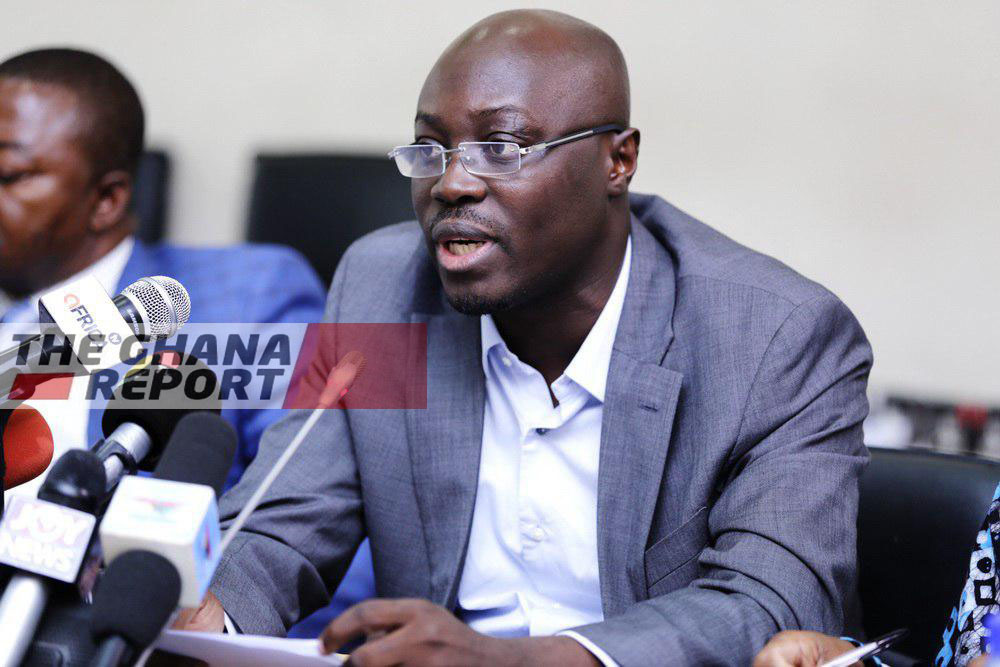Although the Electronic Levy (E-levy) is expected to generate over GH¢ 6,96 billion in 2022 and create more job opportunities, the Minority in Parliament has refused to be persuaded to accept it.
The Ranking Member on the Finance Committee of Parliament, Dr Cassiel Ato Forson, said the E-levy being championed by the New Patriotic Party (NPP) cannot be a solution to Ghana’s economic problems.
“Today we have been told that this tax can cure all the sicknesses of this Ghanaian economy, to the extent that this tax is more powerful than most of the herbal medicines that we have. We’re even being told that this tax can cure my colleague Hon Okudzeto Ablakwa’s bald head.
“Mr Speaker, this is a dangerous tax. The Ministry of Finance has often said that this single tax is what will cure our sickness. This sickness has become an endemic sickness, and I believe that E-levy alone cannot cure the sickness.
“I urge the minister to come up with a comprehensive package to restore the country and not to concentrate on E-levy as the panacea of our economic problems. I do not believe it,” he argued.
The legislator was debating a motion moved by the Minister of Finance, Ken Ofori-Atta, on the controversial electronic transfer levy on Tuesday, 29 March 2022.
He said there was a need for a bigger policy initiative that seeks to address the major strategic and structural deficiencies that are bedevilling the country.
According to him, this tax is targeted at the ordinary Ghanaian, since most of them use mobile money transactions as a means of savings.
He believes it is wrong for the government to consider taxing somebody because of his savings.
The Ajumako-Enyan-Esiam MP also pointed out that SSNIT have adopted mobile money as a means of contributing to one’s pension, and taxing mobile transactions will bring adverse effects.
“If I have a bank account and I want to transfer money to my own bank account, I will be taxed. This means you’re taxing me for removing money from my front pocket to my back pocket. How can you do that,” he quizzed.
He is convinced the E-levy is nothing but a digital pocket tax.
The former deputy Finance Minister then reiterated the stance that the Minority in Parliament is not against taxation but will vote against this new E-levy being introduced by the governing NPP.
But the deputy Finance Minister Abena Osei Asare, who spoke on the side of the Majority, dispelled some misconceptions.
She stated that transfers from mobile money to a bank account would not be taxed just as a transfer from one mobile money account to another mobile money account that belongs to the same person.
Meanwhile, Finance Minister Ken Ofori Atta is hopeful the E-levy will be passed by the end of March.
The E-levy is a tax applied on transactions made on electronic or digital platforms.
The E-Levy is also expected to generate an estimated amount of GH¢7.89 billion in 2023, GH¢8.92 billion in 2024 and GH¢10.09 billion in 2025.
It is also one of the measures to increase the country’s tax to Gross Domestic Product (GDP) ratio from 13 per cent to 16 per cent.
Yet, a section of Ghanaians has rejected its implementation.
The levy has divided parliament, with the Majority pushing for approval, while the minority has kicked against it.
There was a split vote of 12 for each side at parliament’s finance committee until the chairman cast the decisive vote favouring the proposal.
The chamber turned chaotic as MPs pushed, shoved and punched each other during the heated exchanges that many observers have since condemned.
This was after the Speaker, Alban Bagbin, had left and delegated the First Deputy Speaker, Joe Osei Owusu, to take over proceedings.
The minority has said it will do all it can to ensure that the bill does not see the light of day, insisting it is not in the best interest of Ghanaians.



